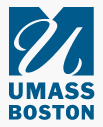Home > CIEE > Vol. 2 > Iss. 1 (2015)
Abstract
Building on the work of French philosopher Michel Foucault, this paper utilises critical discourse analysis to examine claims attached to MOOCs in New York Times articles published between 2012 and 2013. Discourse analysis is proposed as a valuable tool enabling the understanding of MOOCs as historically constituted and socially constructed “events” with hidden meanings masked by rhetoric slogans. Noting that language is not just the reflection of social and psychological life but rather constructs social realities, this work posits how both media and commercial MOOC providers have constructed an “education is broken” narrative which states (1) traditional universities are no longer able to equip learners with that kind of skills that are needed to master the challenges of our digital society and (2) technological innovations are now available that will revolutionize education, i.e. provide world class education in a cheap and effective way to every person on the planet. Through structural analysis of the characteristics of the articles as an empirical base for the analysis of the discursive formation, the author reviews a data set of 58 MOOC articles, analysing the corpus in terms of distinctive discourse strands, i.e. certain (sub-) topics are summarized into groups. The author concludes that three different versions of such social worlds are collectively constructed: First, MOOCs are portrayed as something totally innovative and novel, leading to a collective feeling of enthusiasm because, for the first time in history, we are able to educate huge masses of people around the world at an affordable price; second, MOOCs are depicted as embedded in an evolutionary process of online education, yet identified to be “disruptive innovations;” third; moral regulation, and most particularly responsibilisation of the self, is framed by neoliberal arguments to construct the vision of a “self-responsible” learner who is in charge of his/her learning process.
Keywords
MOOC, discourse analysis
Recommended Citation
Deimann, Markus
(2015)
"The dark side of the MOOC - A critical inquiry on their claims and realities,"
Current Issues in Emerging eLearning: Vol. 2:
Iss.
1, Article 3.
Available at:
https://scholarworks.umb.edu/ciee/vol2/iss1/3
